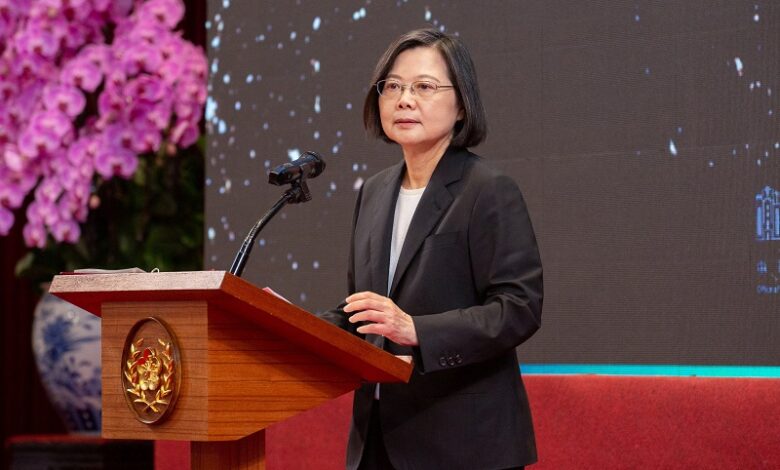Taiwan President Defends Democracy Amid China’s Threats

News Mania Desk/ Agnibeena Ghosh/25th June 2024
Taiwanese President Lai Ching-te delivered a robust defense of democracy in response to recent threats from China, emphasizing that “democracy is not a crime” while condemning autocracy as the true menace. China, which views Taiwan as a breakaway province, recently intensified its rhetoric and military posturing following Lai’s inauguration, branding him a separatist.
During a press conference in Taipei, President Lai expressed sympathy for flooding in southern China before addressing China’s latest measures targeting supporters of Taiwan’s independence. He staunchly rejected China’s right to impose sanctions on Taiwan citizens based on their political beliefs, asserting that Beijing has no jurisdiction over Taiwan’s democratic governance.
According to Lai, China categorizes anyone not supporting “reunification” as a Taiwan independence advocate, a stance he refuted by urging China to acknowledge Taiwan’s sovereignty and engage in dialogue with its democratically elected government. Failure to do so, he warned, would only strain cross-strait relations further.
The United States also weighed in on China’s actions, with the State Department condemning what it described as “escalatory and destabilizing language and actions” by Chinese officials. The U.S. emphasized that threats and legal maneuvers were not conducive to peacefully resolving differences across the Taiwan Strait.
In response to increased Chinese military activities near Taiwan, the island reported 115 Chinese military aircraft operating in proximity, marking a significant uptick in tensions. Taiwan’s defense establishment noted that such maneuvers have become routine, part of China’s ongoing “grey zone” tactics to pressure Taiwan.
Ahead of Taiwan’s Han Kuang war games, scheduled for next month, Taiwanese officials underscored the need to simulate realistic combat scenarios amid rising threats from China. President Lai, adamant in rejecting Beijing’s sovereignty claims, reiterated Taiwan’s stance that its future should be determined solely by its people.
Domestically, President Lai faces challenges following his Democratic Progressive Party’s loss of parliamentary majority in January. At the same news conference, Lai criticized recent parliamentary reforms pushed through by the opposition, questioning their constitutionality and their implications for government accountability.
The Republic of China government, relocated to Taiwan in 1949 after losing the Chinese civil war to Mao Zedong’s Communists, maintains Taiwan’s status as an independent nation. President Lai’s administration has repeatedly offered dialogue with Beijing, efforts that have so far been rebuffed by the Chinese government.
As tensions persist, Taiwan remains steadfast in asserting its autonomy and democratic principles amidst external pressures, aiming to navigate geopolitical challenges while safeguarding its sovereignty and national interests.






